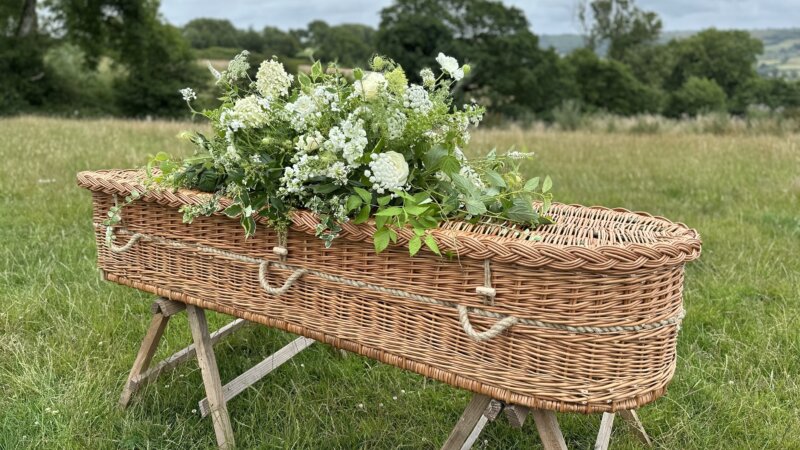Daljit Nagra: Never rest on your laurels
Daljit Nagra is one of Britain's most innovative poets. His poems relate to the experience of British-born Indians, especially Indian Sikhs, and often employ language that imitates the English spoken by Indian immigrants whose first language is Punjabi, sometimes called 'Punglish'. We talked to Daljit ahead of his appearance at Off the Shelf Literature Festival this month.
Tell us a bit about your latest collection, Tippoo Sultan's Incredible White-Man-Eating Tiger Toy-Machine!!!
It's a bit of a mouthful! Well, I wanted to write in the style of the first book, which had both very serious and comic poems, a real mixture of things, and I quite like writing in these different styles and attitudes. I find the British Empire particularly interesting from a historical starting point, where the British met Indians. If it wasn't for that I wouldn't be living in Britain now - if it wasn't for that historical contact. I find it a point of interest, so some of the poems look at the good and bad of the empire, and in the final poem being an empire subject. There's also poems about children and family, people from dual heritage backgrounds and those sorts of issues.
Was there any particular memory or experience that inspired the book?
Partly looking at the historical arrival of Indians into Britain and how they settled in, interacted with each other and white British people. To continue exploring the second and third generations' issues with that original first generation. There are issues throughout the book I guess. I married a white woman from Huddersfield. We've been together for about a decade and we have a child who has a dual heritage background, which led me to consider those sorts of issues historically, how these people don't have easily identifiable tick box criteria for identity.
I read that you used to live in Sheffield as a teenager.
My parents had a shop in Gleadless valley. I went to High Storrs school and did my A Levels at Richmond College. I went to university in 1988 and my parents sold their shop in the mid 90s, so we left Sheffield then.
Do you have any strong impressions or memories of Sheffield?
It seemed like no one had jobs and we'd come from West London, which was so affluent. The Indians lived in one area, the Pakistanis in another, the working class and the well-off in another. Everyone was fractioned, and there was a great deal of segregation in the 80s, whether it be race or status, so I felt some friction. We had a shop in a very poor, run-down area but I went to school in a very middle class area, with fashionable shops and large houses. It felt like a different world.
What do you find is the best environment to write in?
I just write whenever. I work part-time in a school and I do a lot of readings so I make a living out of that and running workshops for adults, so I don't really have any fixed time. I usually wait for an idea to form and I'll write a first draft in a few minutes. I'll do some of these every few weeks or few months and wait for the poem to form itself in my head, rather than just writing scraps. I find that's better once they've coalesced in my brain for awhile.
How long does it take you to write a poem?
Some of the poems I'm editing on or off for 2-3 years. I'll leave them and come back to them, partly just to make sure I've got the best version of each idea and each line and to make sure it's still fresh and natural sounding, with the best possibilities fulfilled. I don't try and publish a poem for at least two years, so I'll let it sit there and come back to it every few months. Sometimes a year later I've just changed a word and it's been worth the wait. It's also given me the opportunity to do background reading of the poem, to perhaps find a more complex level I can put in the poem. I guess I'm very slow but I enjoy finding ways of keeping a poem alive as it were.
Do you always wait for inspiration to strike or do you ever force yourself to write?
I've not done that for years now. I used to force poems and editing, but now I just wait for the poem and the editing to call to me, if that doesn't sound too weird. I'll try not to force it, as when I've done that in the past I've felt I've damaged the poem. Editing is a delicate thing.
Do you have a certain way of developing poems?
There's various things I end up doing. If it's going to come in one big whoosh, I'll just let it write itself and edit later, but I'll also research the area the poem is about. I tend to read lots of stuff around the area to prime my unconcious in the poem. I often find altered states are a good place for poems to come from. I had flu several months ago and wrote a few poems that went into my collection. It's great editing on a hangover. You want to find the right word and sometimes being logical doesn't help. So it's not that I'm encouraging people to get drunk and write - it's the hangover after that's useful.
What are you reading at the moment?
I'm reading loads of poetry all the time, every day. So many at the moment: Les Murray, the Australian poet; Czcsawl Milosz, a Polish poet who has been translated by American poets; Jo Shapscott, who I work with. It's an honour to work with her at Faber and it's a pleasure reading her work. There's simplicity and cleverness to her poems at the same time.
What would your advice be to aspiring poets?
It's worth sending poems out to magazines and using editors as a checking device. If they've been rejected by different magazines often that means the poem needs editing. Be very thick-skinned when sending things out. Magazines get sent so many of them, editors might not find your poems to their taste, or read them in a wrong mood that day. Look for advice and critical feedback on your poems, not just "It's good", because unless it's on the level of Shakespeare or Milton it can always be improved. Never rest on your laurels.
You can see Daljit read on 27th October at the Quaker Meeting House. )







